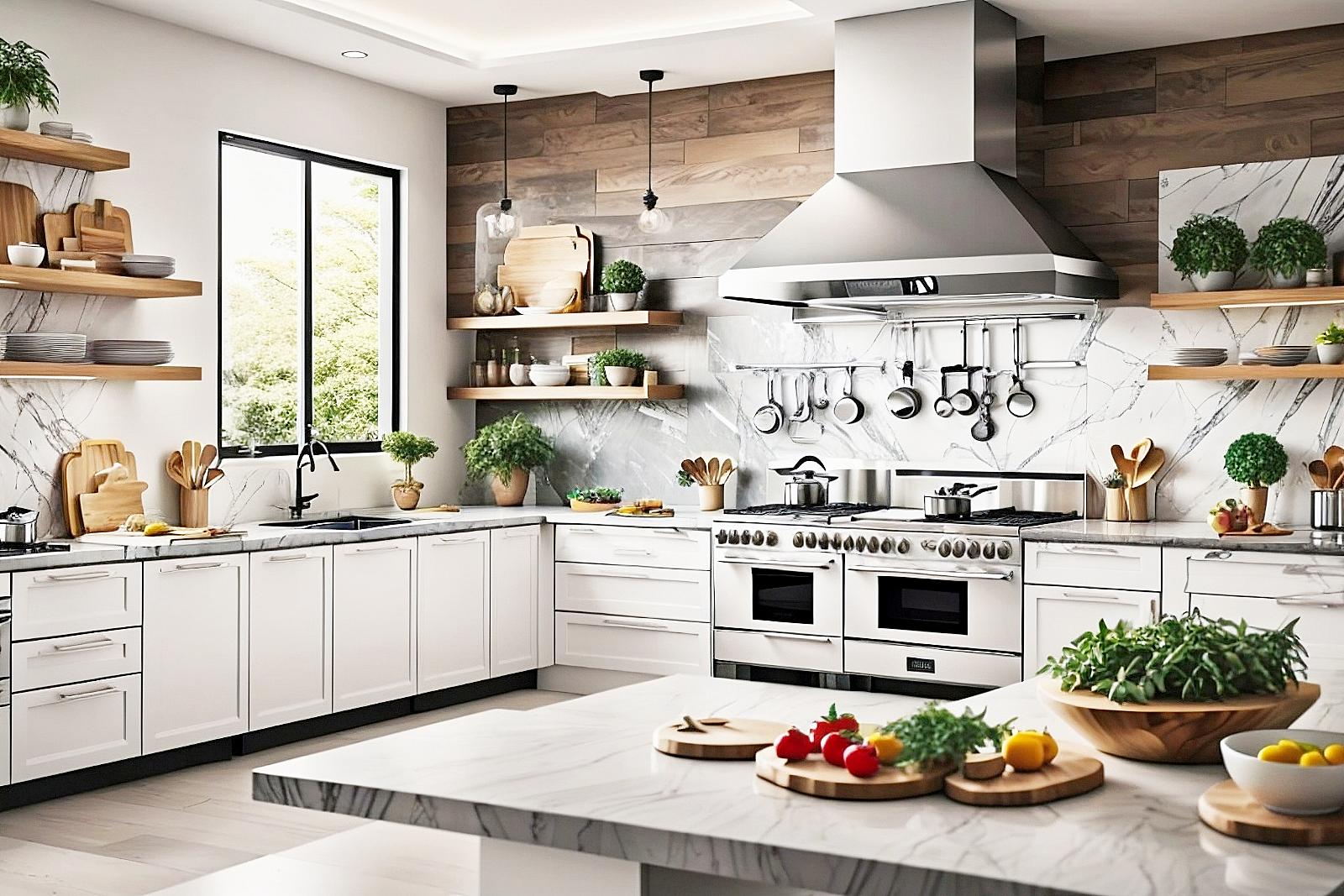What is the meaning of the furniture term Synthetic Material?
Answer: Synthetic materials in furniture refer to any material that is artificially manufactured or created through chemical processes. These materials are designed to imitate or substitute for natural materials, presenting various benefits such as durability, cost-effectiveness, and versatility... read more
| Previous term: Sycamore | Next term: Tabernacle |
Smart Kitchen Appliances
Smart kitchen appliances are designed to make cooking and managing the kitchen more efficient, convenient, and personalized. Enhance your cooking experience with cutting-edge smart kitchen appliances. Discover efficient ways to prepare delectable meals using state-of-the-art cooking technology and smart functionalities.

Smart kitchen appliances are designed to make cooking and managing the kitchen more efficient, convenient, and personalized. Enhance your cooking experience with cutting-edge smart kitchen appliances. Discover efficient ways to prepare delectable meals using state-of-the-art cooking technology and smart functionalities.

What is the meaning of the furniture term Synthetic Material?
Synthetic materials are commonly used as substitutes for natural materials in furniture production due to their ability to mimic the appearance and characteristics of natural materials while often offering improved performance or affordability.
Synthetic materials used in furniture manufacturing include:
Synthetic fibers such as polyester, nylon, and acrylic are commonly used in upholstered furniture, providing durability, resistance to staining and fading, and ease of cleaning.
Polyvinyl chloride (PVC) is a synthetic plastic material used in furniture upholstery, particularly for leather-like coverings. It offers moisture resistance, easy maintenance, and a significantly lower cost compared to genuine leather.
Synthetic foam materials, such as polyurethane foam or memory foam, are widely used in furniture cushions. These foams provide comfort, support, and resilience while being more affordable and versatile than natural materials like down or feathers.
Medium-density fiberboard (MDF) and particleboard are engineered wood products commonly used in furniture construction. They are made from wood fibers or particles combined with a synthetic adhesive, offering stability, strength, and uniformity in fabrication.
Synthetic surfacing materials like melamine and laminate are used to provide durable and decorative finishes on furniture surfaces. These materials imitate wood, stone, or other natural textures and are resistant to scratches, stains, and moisture.
In outdoor furniture, synthetic rattan or wicker made from materials like polyethylene or resin is often used as a substitute for natural rattan or wicker. Synthetic versions offer increased durability, weather resistance, and low maintenance.
Synthetic materials offer furniture manufacturers many design and functional advantages, allowing them to create affordable, resilient, and aesthetically versatile products while reducing reliance on natural resources.
Synthetic materials are commonly used as substitutes for natural materials in furniture production due to their ability to mimic the appearance and characteristics of natural materials while often offering improved performance or affordability.
Synthetic materials used in furniture manufacturing include:
Synthetic fibers such as polyester, nylon, and acrylic are commonly used in upholstered furniture, providing durability, resistance to staining and fading, and ease of cleaning.
Polyvinyl chloride (PVC) is a synthetic plastic material used in furniture upholstery, particularly for leather-like coverings. It offers moisture resistance, easy maintenance, and a significantly lower cost compared to genuine leather.
Synthetic foam materials, such as polyurethane foam or memory foam, are widely used in furniture cushions. These foams provide comfort, support, and resilience while being more affordable and versatile than natural materials like down or feathers.
Medium-density fiberboard (MDF) and particleboard are engineered wood products commonly used in furniture construction. They are made from wood fibers or particles combined with a synthetic adhesive, offering stability, strength, and uniformity in fabrication.
Synthetic surfacing materials like melamine and laminate are used to provide durable and decorative finishes on furniture surfaces. These materials imitate wood, stone, or other natural textures and are resistant to scratches, stains, and moisture.
In outdoor furniture, synthetic rattan or wicker made from materials like polyethylene or resin is often used as a substitute for natural rattan or wicker. Synthetic versions offer increased durability, weather resistance, and low maintenance.
Synthetic materials offer furniture manufacturers many design and functional advantages, allowing them to create affordable, resilient, and aesthetically versatile products while reducing reliance on natural resources.